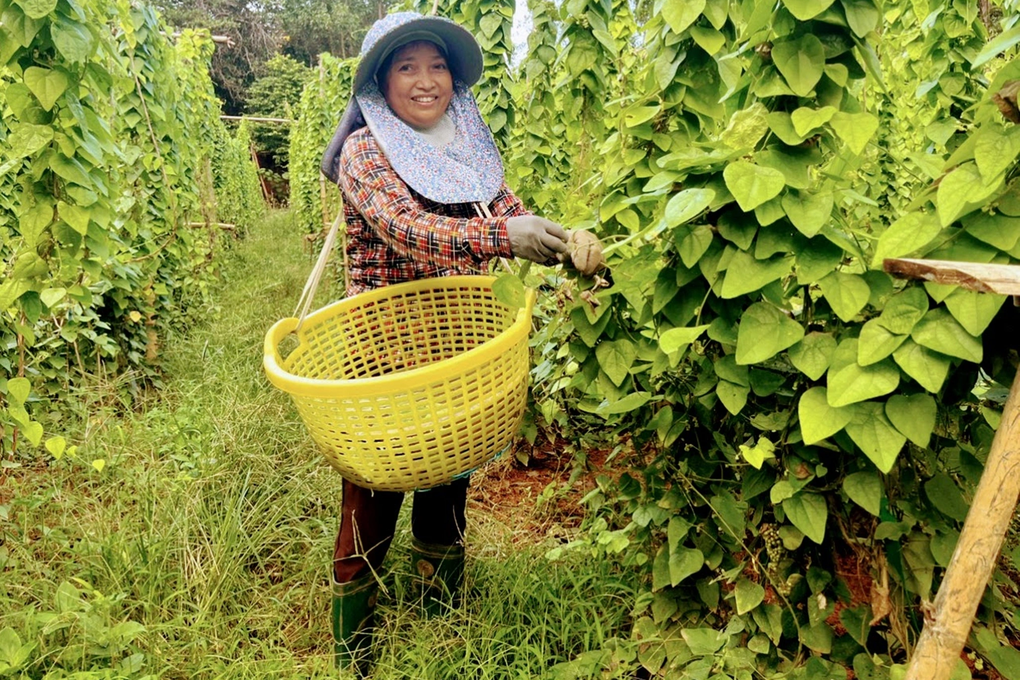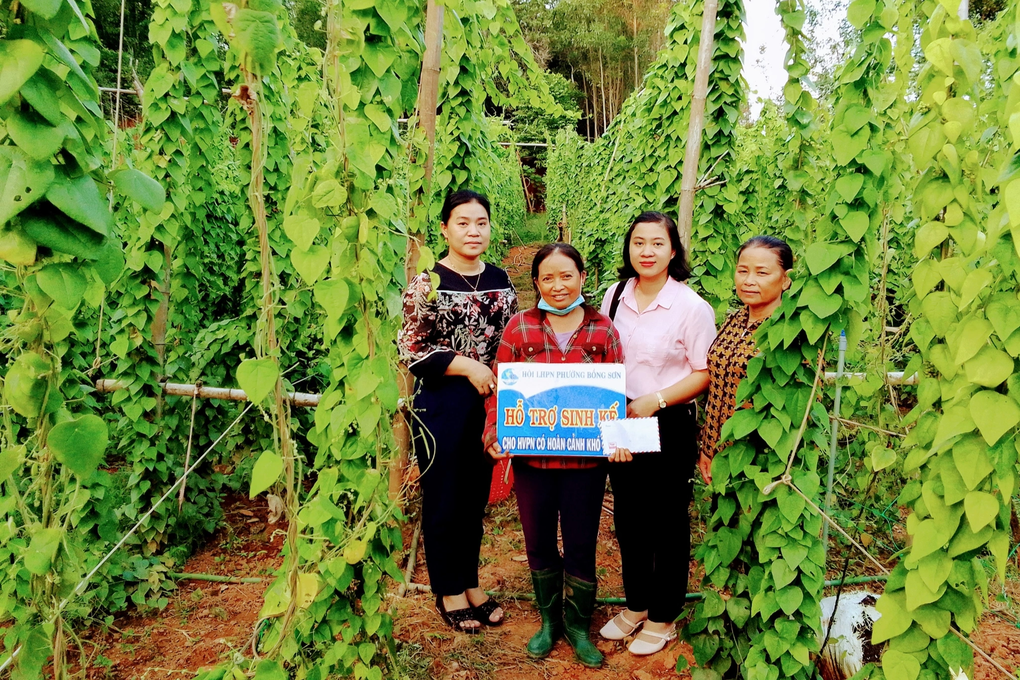
The couple Mr. Tran Van Tham and Ms. Bui Thi Buoi in Binh Dinh brought dew ginseng plants from the South to plant on their family’s hilly land, and suddenly had a good income.
The couple Mr. Tran Van Tham (59 years old) and Ms. Bui Thi Buoi (57 years old, living in group 3, Thiet Dinh Bac neighborhood, Bong Son ward, Hoai Nhon town, Binh Dinh province) are considered the first people to introduce the breed. The ginseng tree was successfully planted in the town.

On an area of 3,500 square meters of hilly land, Mr. Tham and his wife planted more than 7,000 ginseng roots, all of which have turned green and have thick leaves. To prevent trees from falling during the rainy season, on each planting bed, he designed rows of concrete pillars, each 5m apart, linked together with sturdy steel wires.
According to Mr. Tham, ginseng is a vine, so he stretched twine made of nylon and coconut fiber from the base to the trellis, which both helps the plant grow and harvest easily. After more than a year of sowing seeds, the ginseng garden has now been harvested.
Mr. Tham said that after 5 years of working as a laborer in the southern provinces, in 2021, he brought his whole family back to his hometown to live. Before returning, he learned how to develop the garden economy of the people in the South. In the end, he chose the ginseng tree because it was suitable for his family’s conditions, taking advantage of his family’s large garden land. .
“As far as I know, in Hoai Nhon town, perhaps no one has grown ginseng as a raw material. So, at first, I did it mainly to learn and gain experience. Up to now, I have understood this plant variety. “, Mr. Tham said.

According to Mr. Tham, ginseng is a leafy plant so it “eats manure” but to ensure consumer health and ease of sale, he prioritizes using oil cake manure and amending the soil with peanut shells mixed with the product. biology. By doing so, the plants grow strongly, the leaves are thick and dark green, the biomass of the ginseng jelly product increases, and it not only helps the plant increase its resistance but also improves the soil.
“In the beginning, due to climatic conditions not like in the South, combined with lack of experience, many ginseng vines were planted for a while but grew slowly or died, and had to be replanted many times. It was difficult, but I did not I gave up and continued to tinker and learn more about the technical farming processes that I have now overcome,” Mr. Tham said.
To date, Mr. Tham and his wife’s ginseng garden has harvested 10-15kg of ginseng leaves every day. In addition to the provincial market, he also has many customers from the provinces of Quang Ngai, Quang Nam, Lam Dong, Gia Lai and Ho Chi Minh City.
The raw material of ginseng leaves from Mr. Tham’s garden is highly appreciated due to its high biomass and rich flavor.
Not only growing ginseng jelly, Mr. Tham and his wife also invested in buying a machine to crush ginseng leaves to process ginseng jelly to supply to small traders in markets and sell at home.
The selling price of ginseng dew ranges from 40,000 to 100,000 VND/kg, depending on the distribution market locally or outside the province. Each month, Mr. Tham and his wife earn a profit of 18-20 million VND.
Mr. Nguyen Trung Hoa, Vice Chairman of Bong Son Ward People’s Committee, acknowledged that Mr. Tham and his wife’s idea of growing ginseng is a new model in the locality and has been effective. It is commendable that from the beginning, Mr. Tham developed the ginseng plant in the direction of creating products that are safe for human health and environmentally friendly.
To provide additional resources to help Mr. Tham invest in irrigation systems, process and preserve post-harvest products, the local government will support him in accessing preferential loans as well as selling products. .
($1=24,000 VND)
Photo,Video: Internet (Vinlove.net)
